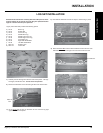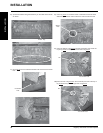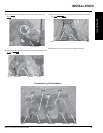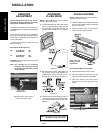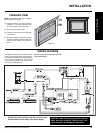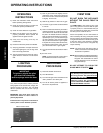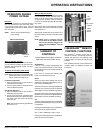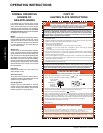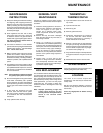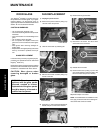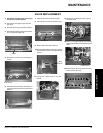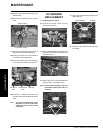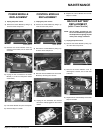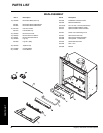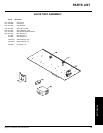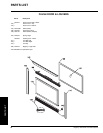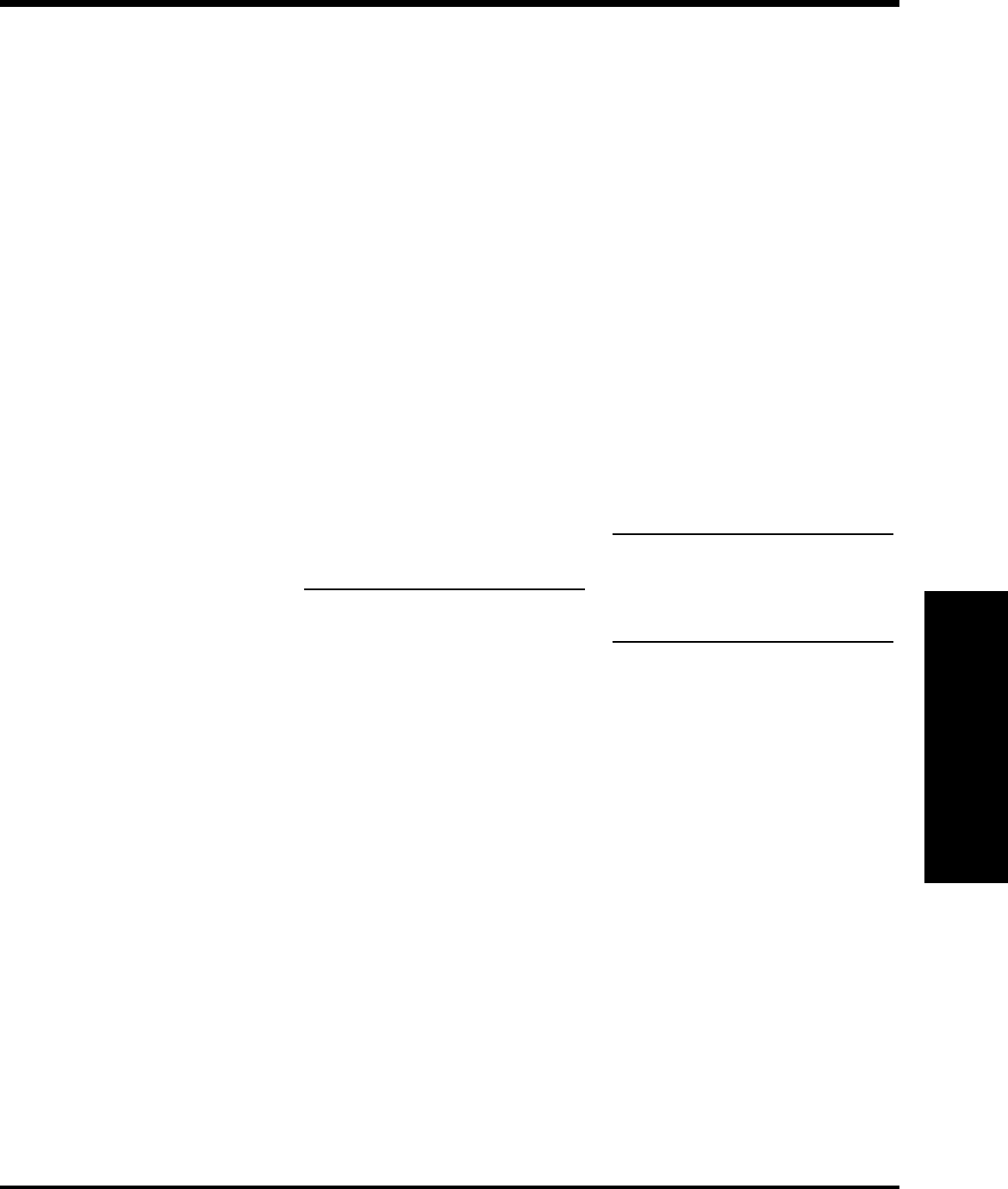
Regency
®
P40 Direct Vent Gas Fireplace 37
MAINTENANCE
MAINTENANCE
INSTRUCTIONS
1) Always turn off the gas valve before cleaning.
For relighting, refer to lighting instructions.
Keep the burner and control compartment
clean by brushing and vacuuming at least
once a year. When cleaning the logs, use a
soft clean paint brush as the logs are fragile
and easily damaged.
2) Clean appliance and door with a damp
cloth (never when unit is hot). Never use
an abrasive cleaner. The glass should be
cleaned with a gas fi replace glass cleaner.
The glass should be cleaned when it
starts looking cloudy.
3) The heater is fi nished in a heat resistant
paint and should only be refi nished with heat
resistant paint. Regency
®
uses StoveBright
Paint - Metallic Black #6309.
4) Make a periodic check of burner for proper
position and condition. Visually check the
fl ame of the burner periodically, making sure
the fl ames are steady; not lifting or fl oating.
If there is a problem, call a qualifi ed service
person.
5) The appliance and venting system must be
inspected before use, and at least annually,
by a qualifi ed fi eld service person, to ensure
that the fl ow of combustion and ventilation
air is not obstructed.
Note: Never operate the appliance without
the glass properly secured in place.
6) Do not use this appliance if any part has been
under water. Immediately call a qualifi ed
service technician to inspect the appliance
and to replace any part of the control system
and any gas control which has been under
water.
7) In the event this appliance has been
serviced, check that the vent-air system
has been properly resealed & reinstalled
in accordance with the manufacturer's
instructions.
8) Verify operation after servicing.
THERMOPILE /
THERMOCOUPLE
1) Open the Bottom Louver and remove the
Top Louver.
2) Open and remove door.
3) Remove log set.
4) Remove grate and burner.
5) Disconnect thermocouple by loosening
nut from the valve with a 9mm wrench.
Disconnect thermopile by loosening 2
screws marked TP on the valve.
6) Remove 2 screws from the pilot assembly
and pull up far enough to be able to loosen
the thermocouple or thermopile with a 7/16"
wrench. NOTE: the pilot line is very fragile,
use caution when pulling it up.
7) Drop the thermocouple or thermopile down
through the extrusion and pull it out of the
unit.
8) Reinstall the new ones in reverse order.
GLASS GASKET
If the glass gasket requires replacement use a
tadpole glass gasket (Part # 936-155).
LOUVERS
The finish on the louvers require little
maintenance, and need only be cleaned with
a damp cloth.
DO NOT use abrasive materials or chemical
cleaners, as they may harm the fi nish and void
the warranty.
Clean any fi ngerprints off before turning
the unit on.
GENERAL VENT
MAINTENANCE
Conduct an inspection of the venting system
semiannually. Recommended areas to inspect
as follows:
1) Check the Venting System for corrosion in
areas that are exposed to the elements.
These will appear as rust spots or
streaks, and in extreme cases, holes.
These components should be replaced
immediately.
2) Remove the Cap, and shine a fl ashlight
down the Vent. Remove any bird nests, or
other foreign material.
3) Check for evidences of excessive
condensation, such as water droplets forming
in the inner liner, and subsequently dripping
out the joints, Continuous condensation can
cause corrosion of caps, pipe, and fi ttings.
It may be caused by having excessive
lateral runs, too many elbows, and exterior
portions of the system being exposed to
cold weather.
4) Inspect joints, to verify that no pipe
sections or fi ttings have been disturbed,
and consequently loosened. Also check
mechanical supports such as Wall Straps,
or plumbers' tape for rigidity.
LOG REPLACEMENT
The unit should never be used with broken logs.
Turn off the gas valve and allow the unit to cool
before opening door and carefully remove the
logs. (The pilot light generates enough heat to
burn someone.) If for any reason a log should
need replacement, you must use the proper
replacement log. The position of these logs
must be as shown in the diagrams under Log
Installation.
Note: Improper positioning of logs may
create carbon build-up and will
severely alter the unit's performance
which is not covered under
warranty.
MAINTENANCE



